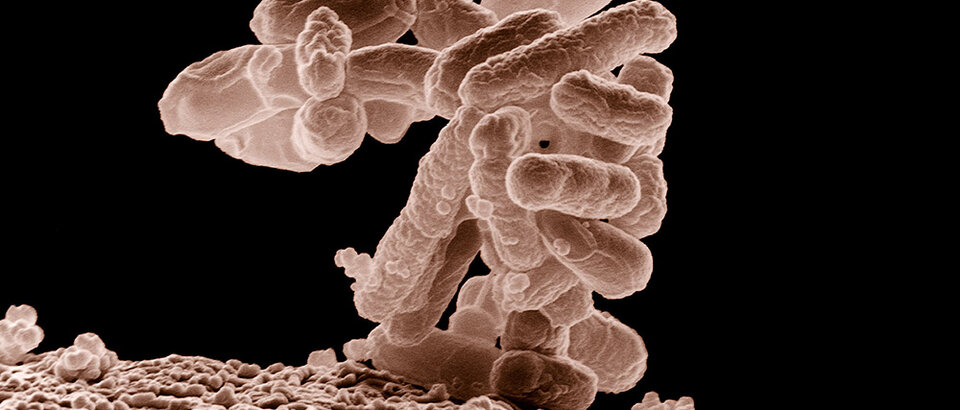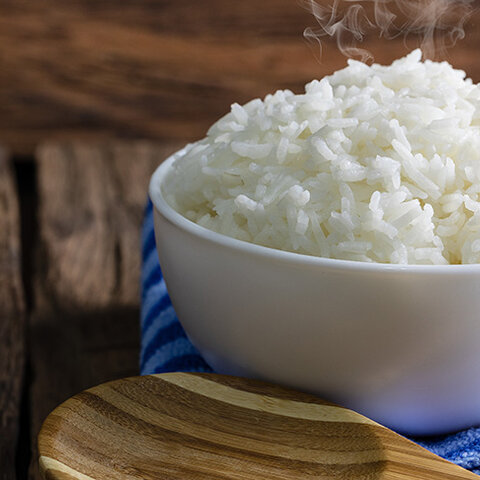
The specific Escherichia coli serotype O157:H7 is an aerobic bacteria that produces a Shiga toxin. This bacteria grows slowly at refrigeration temperatures. E. coli O157:H7 has been shown to survive in acidic food products such as apple cider and mayonnaise.
Sources of the organism:
- Intestinal tracts of some mammals
- Unchlorinated or contaminated water
Associated foods:
- Ground beef
- Raw milk
- Unpasteurized apple cider or juice
- Uncooked fruits and vegetables
Microorganism Characteristics: Gram negative toxin forming aerobic bacteria
The Disease: Hemorrhagic colitis is the name of the disease caused by E. coli O157:H7. A possible complication is hemolytic uremic syndrome (HUS), a urinary tract infection that is a leading cause of acute kidney failure in children.
Symptoms include:
- Severe abdominal cramps
- Bloody diarrhea
- Nausea
- Vomiting
- Low-grade fever
Onset time:
- Symptoms usually begin 3 to 4 days after exposure, but the time may range from 1 to 9 days.
Infective Dose:
- Small numbers (10- 100 cells) of viable E.coli O157:H7 cells need to be consumed for symptoms of the illness to develop.
Duration of symptoms:
- 2-9 days
Prevention:
- Thoroughly cook ground beef products (155°F for 15 seconds or 160°F).
- Follow proper hand washing techniques when handling raw ground beef.
- Drink pasteurized milk and juices.
- Reheat leftover foods to 165°F.
- Clean and sanitize food contact surfaces and utensils.
- Refrigerate foods at 41°F or below.
Source of photo: Agricultural Research Service, United States Department of Agriculture (USDA)
Sources:
E. coli Infection (Escherichia coli), Centers for Disease Control and Prevention
Where is E. coli found?, United States Department of Agriculture (USDA)
Bad Bug Book, Food and Drug Administration (FDA)
Tuttle AR, Trahan ND, Son MS. Growth and Maintenance of Escherichia coli Laboratory Strains. Curr Protoc. 2021 Jan;1(1):e20. doi: 10.1002/cpz1.20. Erratum in: Curr Protoc. 2022 Aug;2(8):e552. doi: 10.1002/cpz1.552. Erratum in: Curr Protoc. 2022 Aug;2(8):e551. doi: 10.1002/cpz1.551. PMID: 33484484; PMCID: PMC8006063.
This article has been peer-reviewed. It was updated in 2024.
Tags:



